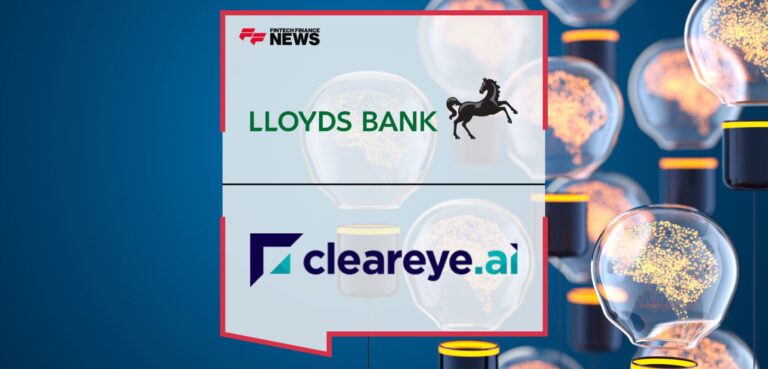A first in the UK, Lloyds Bank has partnered with Cleareye.aia specialized artificial intelligence platform, using AI to streamline the processing and compliance verification of trade finance documents to increase efficiency for clients.
Cleareye.ai’s ClearTrade technology will be implemented starting this month. This cutting-edge technology will use optical character recognition (OCR)*, machine learning, and natural language processing algorithms to extract critical information from trade documentation. This includes digital and paper import and export documentary letters of credit, documentary collections, commitments, and trade loans.
AI-powered technology will also enable automated document reviews – in line with the International Chamber of Commerce’s rules for documentary credits and collections – as well as critical compliance checks, including trade-based money laundering (TBML) checks.
Rogier van Lammeren, Head of Commercial and Working Capital Products at Lloyds Bank Commercial Banking, said: “We are continually looking for ways to help our clients trade in a simpler, faster and more efficient way, and our partnership with Cleareye.ai allows us to do just that. With their AI technology, we will streamline the critical parts of the trade finance processes that we know are important to our clients.”
Mariya George, CEO and Co-Founder of Cleareye.ai, said: “Lloyds Bank is a global pioneer in digital trade, thanks in part to its ability and willingness to form strategic partnerships. We are proud to be working together to apply our technology to its trade finance and compliance processes and look forward to seeing the benefits this will bring to the bank’s customers and the colleagues who serve them.”
The partnership with Cleareye.ai follows a number of UK and global firsts achieved by Lloyds Bank, reflecting the bank’s continued commitment to innovation and the use of digital technologies in trade finance.
In February 2024, Lloyds Bank became the first UK bank to achieve fully digital document collection, using both electronic bills of lading (eBL) and digital promissory notes (dPN). This reduced transaction completion time from 15 days to around 24 hours, also reducing working capital costs.
In 2023, Lloyds Bank was the first bank in the world to transact under the UK’s Electronic Trade Documents Act (ETDA) and in 2022 completed the UK’s first purchase of digital promissory notes under contract law, using the International Trade and Forfaiting Association’s (ITFA) Digital Negotiable Instruments initiative. These ‘pilot’ transactions are now standard offerings for Lloyds Bank clients as they seek to expand and support the use of digital trade instruments across the industry.
*OCR is the electronic or mechanical conversion of images of typed, handwritten, or printed text into machine-encoded text.

